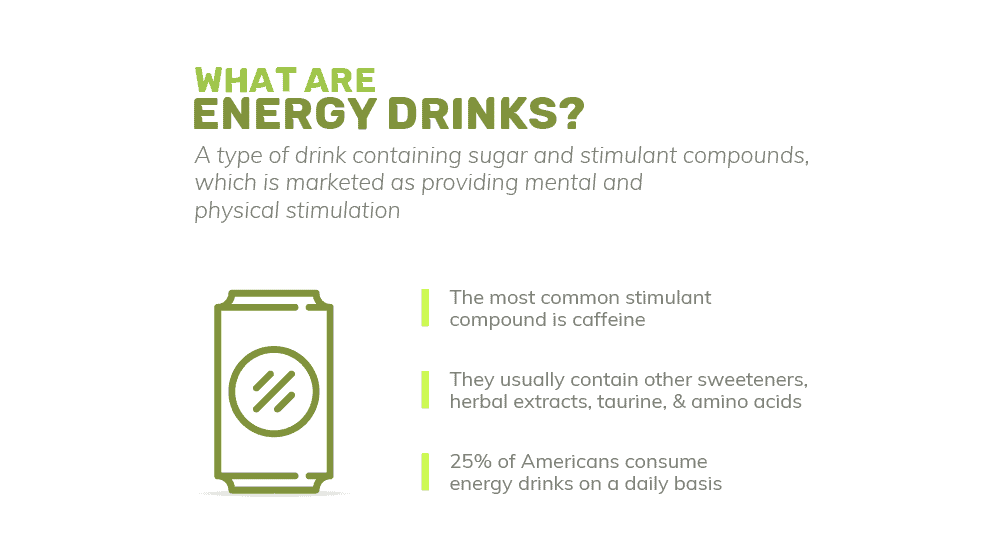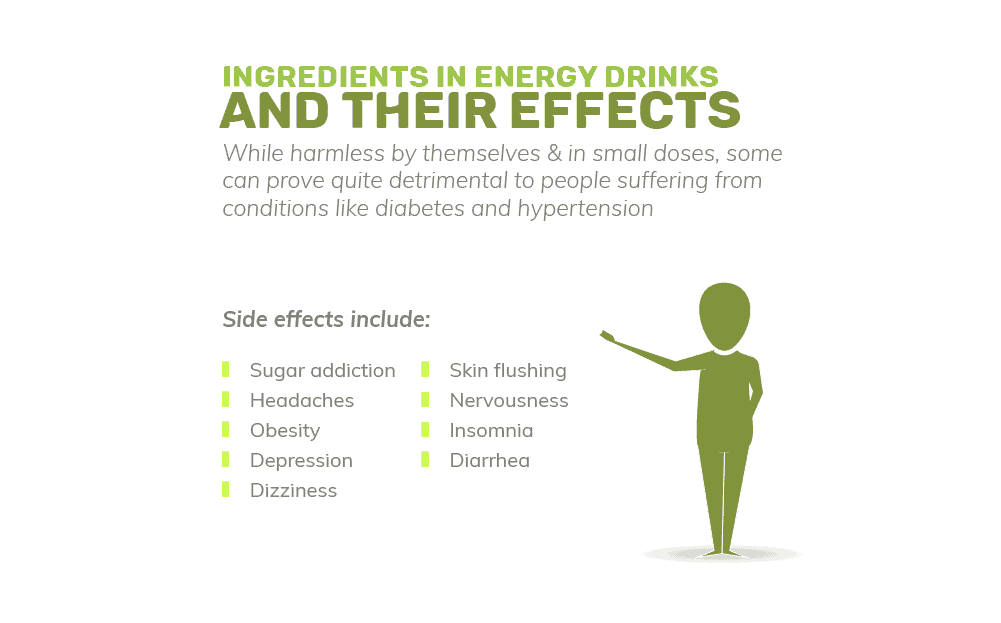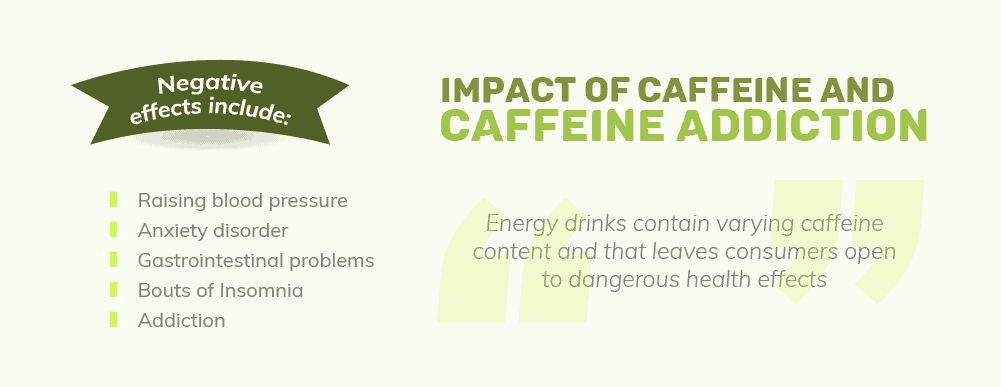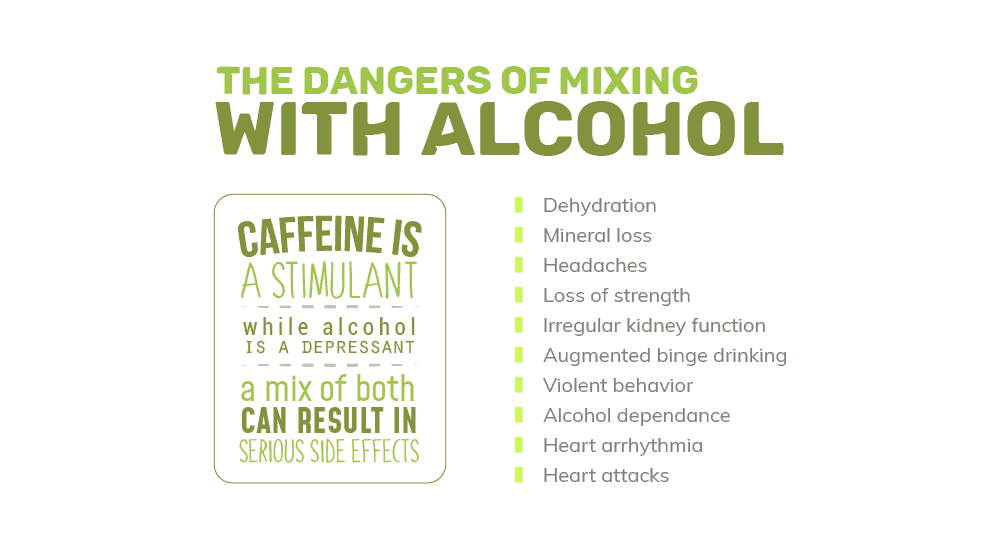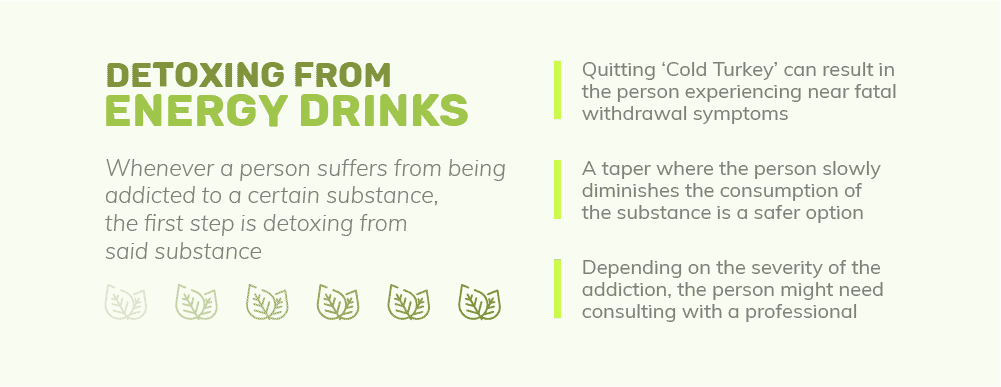Whenever we hear about addiction, energy drinks are not the first things that come to mind. People limit substance abuse to alcohol, prescribed opioid drugs, and illegal drugs. However, those are not always the main culprits. In the Swahili language, there’s a saying that states, “Whatever eats you is on your clothes”. It means we often look far for reasons why things are going wrong. When in reality, the reason is closer to us than we realize. A great example is suffering a long time only to discover your best friend was causing the problems. This is the same scenario with energy drinks. On one hand, energy drinks have their use and benefits. Yet on the other, they could cause irreparable harm to our lives.
“Get your loved one the help they need. Our substance use disorder program accepts many health insurance plans, this is our residential program.”
The Untold Threat from Energy Drinks
Energy drinks are popular caffeinated beverages marketed as improving mental and physical performance. Statistics show 25% of American research respondents admitted to consuming the drinks daily. Common examples of these popular energy drinks include Red Bull, Monster, and Rockstar. We also have NOS, Amp Energy, 5-Hour Energy, and Full Throttle. In late 2010, the U.S. Food and Drug Administration (FDA) put a ban on caffeinated alcoholic beverages. This was after hospital emergency visits almost doubled due to these drinks. The FDA warned several companies to stop using caffeine in their alcoholic drinks. They classified it as an “unsafe food additive”. The companies included Phusion Projects, United Brands, New Century Brewing, and Charge Beverages. Even the Federal Trade Commission (FTC) warned them about marketing their products. The commission said the companies had to “protect consumers”. Thankfully, these manufacturers complied with the new rules. They announced changes or removals of the caffeinated alcoholic beverages from the market. Phusion Projects and Charge Beverages opted to change the formula for their respective drinks Four Loko and Core. They removed the offending ingredient caffeine. Mixing energy drink ingredients and alcohol wasn’t a good idea. This quick reaction from the government and the manufacturers leaves us wondering. What exactly is in the drinks that make them dangerous? Read on to learn more. 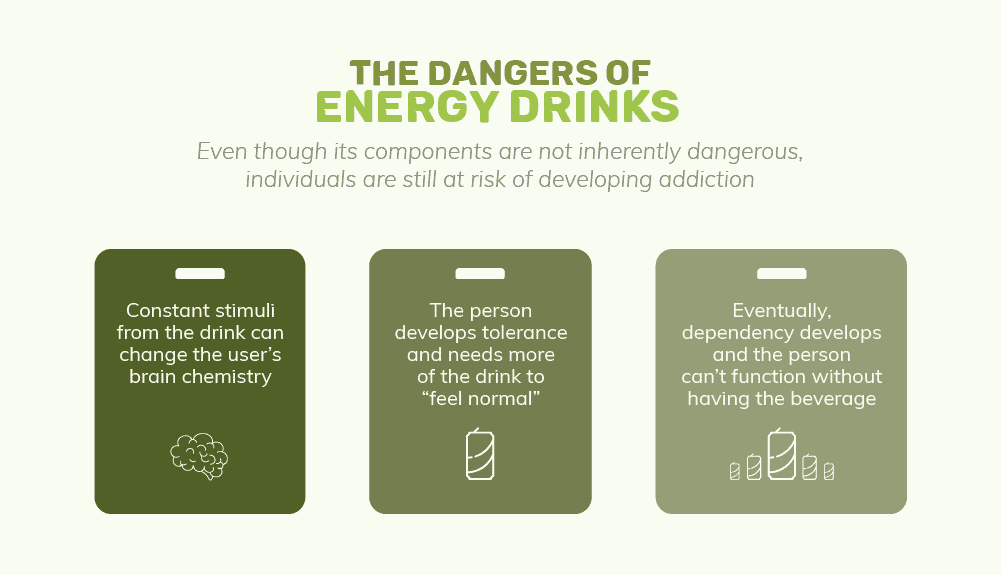
“We treat both addiction and co-occurring disorders such as depression and anxiety. Take a look at our residential program.”
Ingredients in Energy Drinks and Their Effects
Manufacturers always tell us their products provide great benefits. For instance, they say the energy drink benefits include:
- a quick boost of energy and alertness
- improved performance
- reduced stress and better mood
- a supply of B Vitamins, which help in cardiovascular health
- replacement of lost electrolytes in the body
- lowering the risk of diseases and infection due to its antioxidants
- offering great flavors and refreshment
Thus, when people hear about energy drinks and addiction, they ask, “How is this possible?” Most of them recall consuming these drinks when they were young. Now, their kids are taking the drinks as well. Nothing bad happened then. What’s the source of the danger now? Let’s look at energy drink ingredients. Some of the contents include caffeine, Taurine, Guarana, artificial sweeteners, and sugars. Others include amino acids, vitamins, preservatives, artificial coloring, flavors, and detoxifying additives. Energy drinks health concerns are many. Here are some of the benefits and dangers:
Sugars, Artificial Sweeteners, and Flavorings
Sugars can be sucrose or high-fructose corn syrup. Artificial sweeteners used in energy drinks are Sucralose, Aspartame, Ace-K, Stevia, and Saccharin. They are good for weight control and in limiting the sugar intake for diabetics. Despite these benefits, artificial sweeteners harm us by causing sugar addiction. This is a condition where people crave sugar and sweet foods. Sufferers continue getting sugar highs and lows. High sugar consumption leads to headaches, Type 2 Diabetes, and obesity. It also causes high blood pressure, heart attacks, and depression. A quick solution would be detoxing or going cold turkey. Other ways involve retraining your taste buds, and changing your diet.
Taurine
Taurine is an amino acid. Though the body produces its own taurine, energy drinks contain high levels of it. No one knows if this is bad due to the limited research available. Yet, people say taurine regulates the heartbeat, boosts brain development, and inhibits stress.
Guarana
Guarana is a plant from South America with almost similar qualities as caffeine. This similarity comes from a compound called Guarinine. Like Taurine, there isn’t a lot of research done on Guarana. Hence, no one knows if it has the stimulating effects of caffeine.
B Vitamins
B Vitamins examples include Niacin, Riboflavin, B5, B6, B12, and Folic Acid. Their amounts are not high enough to have a lot of impact on the drinker. Their benefits are in improving mood, boosting liver health, and suppressing inflammation. Some reduce cholesterol, which is good for heart health. On the bad side, there is a chance Niacin could cause headaches and dizziness. High levels can cause skin flushing.
Ginseng
Ginseng is a medicinal herb common in East Asia. They say it boosts energy, relieves stress, and strengthens the immune system. Its negatives include dizziness, headaches, nervousness, insomnia, and diarrhea. We’ve left out the main energy drink ingredient. Caffeine affects people’s health the most. Dive in and learn its impact.
Impact of Caffeine and Caffeine Addiction
People see the impact of caffeine every day. One minute your co-worker appears tired and uninspired. The next minute they are buzzing around finishing all the projects. It seems no one minds the idea of using a ‘smart drug’. However, many don’t get to see the very bad side of caffeine. This part of energy drinks makes them dangerous. All we hear about are the possible health benefits of caffeine. They include:
- increasing alertness, memory, stamina, and concentration
- detoxifying the liver and preventing liver disease
- reducing the risk of Parkinson’s disease
- preventing skin and liver cancer
- helping with breathing in asthmatics
- protecting against Type 2 diabetes
- reducing chronic inflammation
- preventing weight gain
The problem with caffeine is the potential for abuse and addiction. Caffeine is in many products today. You can find it in soft drinks, energy drinks, tea brews, chocolate bars, and other products. In energy drinks, the amount of caffeine has different ranges per serving. Some have about 70mg. Others go as high as 240mg of caffeine per serving. When you pit Red Bull vs. Monster, you find Red Bull leading at 111mg and Monster at 86 mg. According to the European Food Safety Authority, daily caffeine intakes from any source should not exceed 400mg. Pregnant women should not take more than 200mg. One recommendation suggests children and adolescents should get 3mg per kg. The main problem with these ranges is people exceed them all the time. Some by choice, while others because it has become an addiction. There are those who take several energy drinks per day. As such, the exposure to health risks is high. Many have experienced heart palpitations. Some started vomiting blood due to abnormal heart rhythms. One woman wrote on social media how her husband suffered a brain hemorrhage. Another person developed acute hepatitis. These are just some of the symptoms of too many energy drinks. How addictive is caffeine as compared to other drugs? Well, it is a psychoactive substance like other drugs. It changes the brain by blocking adenosine receptors. It also stimulates the release of dopamine. Thus, we end up needing higher amounts of caffeine to get the effects we want. Though it may share some effects with drugs such as cocaine, that’s where the similarities end. Cocaine is a much stronger stimulant than caffeine. Moreover, the withdrawal effects of caffeine are not as bad as with cocaine.
“We accept many health insurance plans. Get your life back in order, take a look at our residential program.”
Negative Effects of Caffeine in Energy Drinks
It is important not to understate the long-term side effects of energy drinks. Their varying caffeine content leaves consumers open to dangerous health effects. The negative effects are: Raising Blood Pressure Blood pressure rises when someone drinks several cans of energy drinks in a day. This can cause blood vessels to rapture. It can also cause clots in the arteries. As you may know, a blood clot can cause a stroke if it gets to the brain. Fluctuations in blood pressure can cause heart disease. Effects of heart disease include fatigue, heart attacks, and chest pain. Causes Anxiety Disorders Caffeine triggers the release of adrenaline, which boosts your energy. Yet, in high doses, it can cause anxiety. This leads to stress, rapid breathing, and nervousness. People can also become jittery. Chronic stress weakens the immune system and causes depression. Leads to Gastrointestinal Problems It’s common for people to complain about stomach upsets after taking caffeine. When you drink a caffeinated beverage on an empty stomach, it creates a high level of acidity. Some people get loose stools as a result. These energy drinks can worsen Gastroesophageal Reflux Disease (GERD). It is a problem where weak stomach muscles allow the stomach contents to flow back into the esophagus. People get heartburn or acid indigestion. Some women suffer from incontinence due to caffeine. Causes Insomnia While people love being able to stay awake to complete their tasks, insomnia can be deadly. Lack of sleep causes high blood pressure, obesity, cardiovascular problems, anxiety, and depression. It also causes irritability, impaired cognition, and diabetes. It is Addictive and Acts as a Gateway Drug Getting large amounts of caffeine is habit-forming and leads to physical dependence. This level of addiction causes people to experience caffeine withdrawal symptoms. These include headaches, irritability, fatigue, drowsiness, muscle pain, and depression. You can detox from caffeine by going cold turkey or by slowly weaning yourself off it. Aside from being addictive, caffeine can also act as a gateway drug. It changes the brain’s neurochemistry by causing constant mild euphoria in the brain. This makes the brain more sensitive to cocaine-induced euphoria. Studies show teenagers who don’t take energy drinks a lot are less likely to have substance abuse problems. The last threat we need to look at comes from mixing alcohol with energy drinks.
Dangers of Mixing Alcohol with Energy Drinks
People have been experimenting with different cocktails for years. Popular ones include Martini, Old Fashioned, Bloody Mary, Margarita, Cosmopolitan, Mojito, and Mai Tai. They also mix alcohol with sodas or energy drinks. Nevertheless, the caffeine in energy drinks makes this a dangerous idea. Even pharmacists advise people not to mix caffeine with prescribed medications. The interactions cause many health risks. For one, both alcohol and caffeine are diuretics. This means they stimulate the production of urine. Mixing those together means you are at risk for dehydration and mineral loss. This can lead to headaches, loss of strength, and affected kidney function. Second, caffeine masks the level of intoxication. This raises the risk of binge drinking. Binge drinking is responsible for alcohol-related injuries, violence, unwanted or unprotected sex, and alcohol dependence. Alcohol addiction makes people lose control of their lives. Third, the different nature of alcohol and caffeine affects the nervous system. Alcohol is a depressant whereas caffeine is a stimulant. Mixing them sends different messages to the brain. This can lead to heart arrhythmias and attacks. Last, researchers from Purdue University found that mixing energy drinks with alcohol changes the brain in the same way as cocaine. These changes diminish brain function and push people to want more of the drug.
Quitting Energy Drinks
As you can see, energy drinks can have a great impact on our health. While they serve as sources of refreshment, they can also be sources of pain if misused. It is important to manage your consumption or quit drinking altogether. Quitting energy drinks saves you from the caffeine withdrawal symptoms. It also prevents many of the health problems highlighted in this article. The best option is to find healthier alternatives.
What Did you Think About This Blog?
Give it a Rating!

